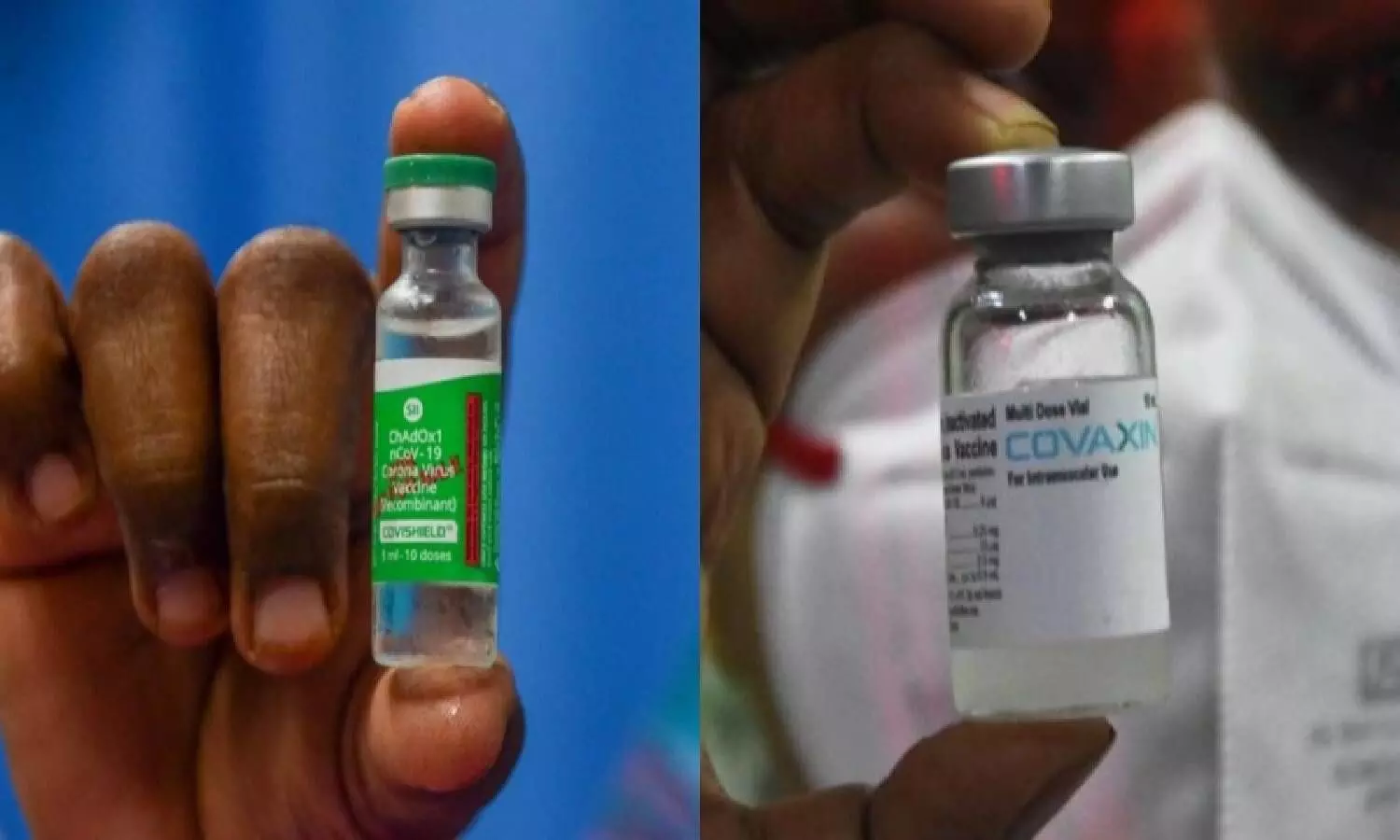Covaxin & Covishield: Individual with these complications shouldn't take vaccine
Hyderabad-based Bharat Biotech, the manufacturer of COVID-19 vaccine Covaxin, has said that people with weaker immunity, those who are on medication that affects their immune system, and people with allergies must not take the Covaxin shot.
By Sumit Jha
Hyderabad: Hyderabad-based Bharat Biotech, the manufacturer of COVID-19 vaccine Covaxin, has said that people with weaker immunity, those who are on medication that affects their immune system, and people with allergies must not take the Covaxin shot.
Last week, the Serum Institute of India, makers of Covishield, had asked people who are severely allergic to any vaccine ingredient not to take the vaccine.
According to Bharat Biotech's fact sheet, people with a history of bleeding disorder, those on blood thinner, people who have a fever, pregnant or breastfeeding women, and people with a serious health issue as determined by the vaccinator or officer supervising vaccination must not be injected with Covaxin.
Recipients are warned of severe allergic reaction that may include difficulty in breathing, swelling of the face and throat, fast heart-beat, rashes all over the body, dizziness and weakness.
Those receiving the vaccine are urged to disclose their medical conditions, the medicines they are taking, and allergies. Those offered Covaxin at pre-specified booths will have the option to receive or reject the vaccine.
Covishield
The Serum Institute of India's fact sheet states that if a person has had a severe allergic reaction after a previous dose of the vaccine then they should not take Covishield.
The ingredients of Covishield vaccine are "L-Histidine, L-Histidine hydrochloride monohydrate, Magnesium chloride hexahydrate, Polysorbate 80, Ethanol, Sucrose, Sodium chloride, Disodium edetate dihydrate (EDTA), Water for injection".
Adverse events
Dr. Rajesh Bhushan, the health secretary, government of India, said there are two vaccines - one that is given emergency use authorisation and another that is given emergency use authorisation under the clinical trial mode. The second one is accompanied by three documents, including a fact sheet, consent form (available in regional language), and adverse event reporting form, to report any such event within seven days after immunisation. The latter clearly mentions that if there is any causal relationship between immunisation and the adverse event, whether severe or serious, the hospital cost will be borne by the authorities.
He added that there is a system in place to ensure a follow-up for people in case of an adverse event.
On 18 January, a man who was administered the COVID-19 vaccine in Bellari, Karnataka, died of a heart attack, according to The News Minute. He was suffering from diabetes and heart condition.
Bellari deputy commissioner Pavan Kumar Malapati told The News Minute that the AEFI (adverse event following immunization) committee of the district concluded that the death is not related to the vaccination. The committee will send a detailed report to the state health department, he said.
The victim has been identified as Nagaraj (43). He was working as an attendant at Sandur General Hospital. He went to work after taking the vaccine on 16 January. On Monday morning, he complained of chest pain and the doctors at Sandur General Hospital began treating him. The cause of his death is myocardial infarction.